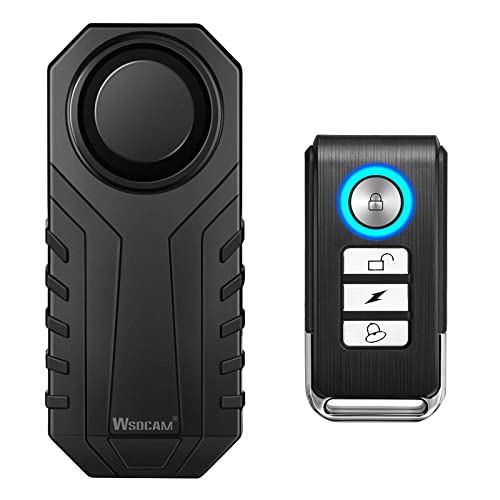You are using an out of date browser. It may not display this or other websites correctly.
You should upgrade or use an alternative browser.
You should upgrade or use an alternative browser.
In over my head....
- Thread starter tkdtuffgirl2003
- Start date
-
- Tags
- head

Help Support VMAX Forum:
This site may earn a commission from merchant affiliate
links, including eBay, Amazon, and others.
davesax36
Well-Known Member
Lithium iron phosphate batteries are cool... Different and cool. Read the thread on advrider.Com comparing the loading and cranking power of agm, lead acid, and LiPo batteries.
Sent from my Galaxy Nexus using Tapatalk
Sent from my Galaxy Nexus using Tapatalk
DMAN999
Well-Known Member
Congrats !!!!It works! I am still going to watch the volts in case there is something else going on but for now....I'm back!
According to everything I read those Lithium Iron Phosphate batteries used in cars and motorcycles are hazardous.Actually, I wasn't referring to their ease of recycling. I was speaking to the fact that they're not considered "hazardous waste" like your typical lead/acid battery is. "Green" encompasses lots of environmental topics.
Here is an MSDS for Lithium Iron Phosphate Rechargeable Batteries (LiFePo4):
http://www.batteryspace.com/prod-specs/MSDS%20LFP%20NDGR%20UN3480.pdf
[FONT=Verdana,Bold][FONT=Verdana,Bold]
"Section 13 - Disposal Considerations
[/FONT][/FONT][FONT=Verdana,Bold][FONT=Verdana,Bold] APPROPRIATE METHOD OF DISPOSAL OF SUBSTANCE ORPREPARATION
[/FONT][/FONT] If batteries are still fully charged or only partially discharged, they can be considered a reactive hazardous waste because of significant amount of unreacted, or unconsumed lithium remaining in thespent battery. The batteries must be neutralized through an approved secondary treatment facility prior to disposal as a hazardous waste. Recycling of battery can be done in authorized facility, through licensed waste carrier."
It works! I am still going to watch the volts in case there is something else going on but for now....I'm back!
Sent from my iPhone using Tapatalk
Good.....I dont know about you...but any day that the bike isnt capable of going outside...is a bad day.
Congrats !!!!
According to everything I read those Lithium Iron Phosphate batteries used in cars and motorcycles are hazardous.
Here is an MSDS for Lithium Iron Phosphate Rechargeable Batteries (LiFePo4):
http://www.batteryspace.com/prod-specs/MSDS%20LFP%20NDGR%20UN3480.pdf
[FONT=Verdana,Bold][FONT=Verdana,Bold]"Section 13 - Disposal Considerations[/FONT][/FONT][FONT=Verdana,Bold][FONT=Verdana,Bold]APPROPRIATE METHOD OF DISPOSAL OF SUBSTANCE ORPREPARATION[/FONT][/FONT]If batteries are still fully charged or only partially discharged, they can be considered a reactive hazardous waste because of significant amount of unreacted, or unconsumed lithium remaining in thespent battery. The batteries must be neutralized through an approved secondary treatment facility prior to disposal as a hazardous waste. Recycling of battery can be done in authorized facility, through licensed waste carrier."
I just looked at my companies policy for dealing with lithium batteries. This is for disposal.
Place MISC Dangerous Goods (Class 9) Label on Container
Battery terminals must be protected and packaged in a manner to prevent contact between terminals.
• Lithium must be shipped in a UN rated poly or metal drum.
• Lithium batteries can NOT be mixed with other batteries in the same containers.
• Lithium batteries MUST be kept dry.
• Place proper label/sticker/markings on DOT container.
• Mark start date on DOT container when first battery is place in container.
• Place DOT container in pallet box/utility box/drum rack.
NOTE: Prepare batteries per DOT 49 CFR.
So....they arent considered "Hazardous" but they are considered "dangerous" per 49CFR. That is the code of federal regulations for transporting and shipping of materials. But to show you how the government thinks....Gasoline, Diesel, Jet fuel, are dangerous...not hazardous....but aerosol cans are considered hazardous.
Last edited:
Tex85
Well-Known Member
Glad to hear you are back up and running! Batteries can be fickle at times and never fail at a "good time."
Sent from my Nexus 5 using Tapatalk
Sent from my Nexus 5 using Tapatalk

$61.70
$64.99
Yamaha 2005-2015 VX110 Deluxe Cruiser Sport VX 110 V1 Oil Change Kit w/NGK Spark Plugs Set
Port Yamaha

$13.99
$14.99
Marsrut 3Pcs Motorcycle Valve Adjustment Wrench Tool, Universal Engine Screw Sleeve Spanner 8mm/9mm/10mm Metal Set
Study Kitchen

$14.39
$15.99
ROCKBROS Windproof Thermal Balaclava Ski Mask for Cycling, Running, Skiing - Men's and Women's
ROCKBROS USA
tkdtuffgirl2003
Well-Known Member
It was such a beautiful day today I took the Max out for a bit. Lots of lookers and compliments! I love my max! Thanks again for all of the help and advice!
Sent from my iPhone using Tapatalk
Sent from my iPhone using Tapatalk
Similar threads
- Replies
- 16
- Views
- 673
- Replies
- 8
- Views
- 802
- Replies
- 10
- Views
- 410
- Replies
- 6
- Views
- 487
















![Bovemanx Motorcycle Phone Mount Holder, [150mph Wind Anti-Shake][7.2inch Big Phone Friendly] Bike Phone Holder, Motorcycle Handlebar Cell Phone Clamp, Compatible with iPhone 16 Pro Max Smartphones](https://m.media-amazon.com/images/I/51F+1sontPL._SL500_.jpg)













![Bike Phone Mount Holder, [Camera Friendly] Motorcycle Phone Mount for Electric Scooter, Mountain, Dirt Bike and Motorcycle - 360° Rotate Suitable for iPhone & Android Smartphones from 4.5-7.0 inches](https://m.media-amazon.com/images/I/51ZirRrsA+L._SL500_.jpg)






![Aomiker Motorcycle Phone Holder Mount - [Metal Extension Arm] [Dual Vibration Dampener] Motorcycle Cell Phone Mount, Bike Phone Handlebar Clamp for iPhone 16 15 14 13 Pro Max Plus, 4.7-6.7" Smartphone](https://m.media-amazon.com/images/I/51gU2g5VxgL._SL500_.jpg)
